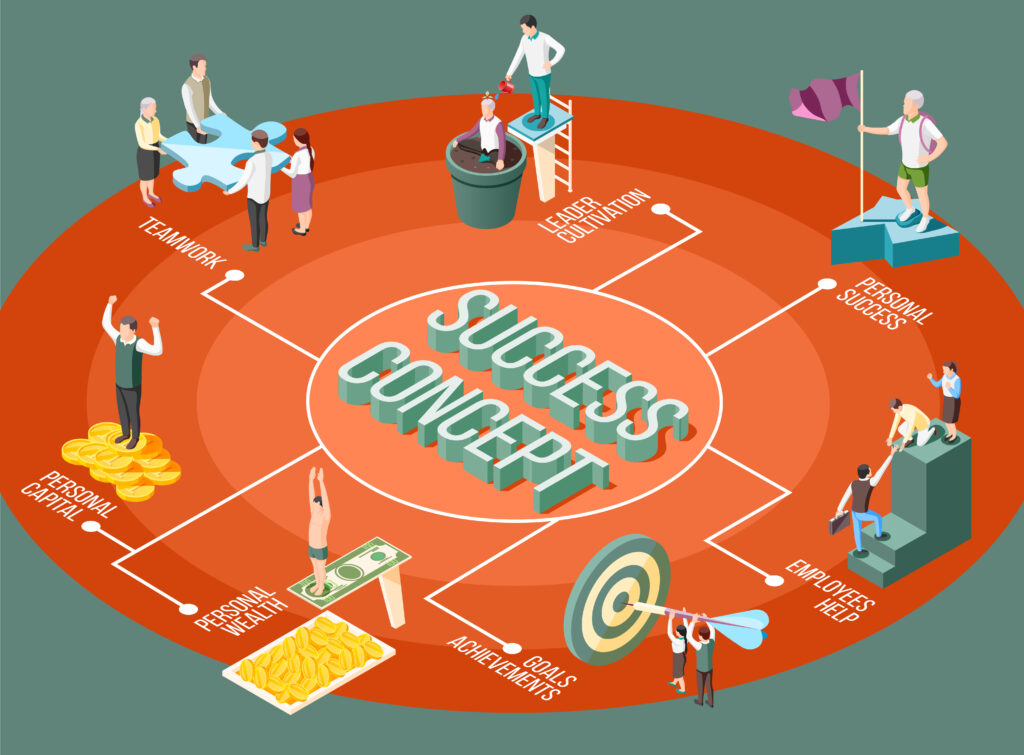Everybody understands the difference between a firefighter and a barista. However, some job titles sound similar — and have similar job functions — and people often get confused. This is particularly true when it comes to the roles of product and project managers. So, what is the difference between a product manager and a project manager?
While both positions require management skills and have similar objectives, they are distinct. Product managers help in the development of a company’s product, whereas project managers handle various projects within an organization.
Here is everything you should know about product and project managers, including what you can do to acquire this type of position.
Table of Contents
Product vs. Project
To avoid confusion, let’s begin by defining the terms product and project.
A product can be anything from a physical product to software and a service, which fulfills the needs of a targeted group of users. It has a life cycle, starting with development and market introduction, acceptance, maturity, and closure when it no longer has to exist.
A project is the one-and-only effort to create a product or service. It has a start and end date and a specific outcome. Typically, projects have five stages—initiation, planning, execution, monitoring and control, and closure.
Skills Required to Become a Project and Product Manager
The technical skill set for each of these roles tends to be distinct.
Product manager skills:
- Data analysis
- Market assessment
- Price modeling
- Basic user experience (UX) knowledge
- Basic business knowledge
Project manager skills:
- Knowledge of project management methodologies like Scrum, Agile, and Waterfall
- Risk management
- Project management tools like Asana or Gantt charts
- Basic budgeting
What Does a Product Manager Do?
A product manager manages a product from the start of its lifecycle until the end. This means they establish the vision of a product, manage any changes to it, and ensure it fulfills customer needs. Unlike project management, product management does not have a defined beginning and ending.
To be a good product manager, they will do the following:
- Define scope, timeline, and budget
- Create schedules and assign tasks
- Track progress using project tools
- Report updates to leadership
- Handle risks and changes
- Motivate teams and solve roadblocks
They focus on the “how” and the “when.”
What Does a Project Manager Do?
A project manager (a different role) runs projects. Projects have defined goals, timelines, and budgets with start and finish times.
Project managers develop plans, create teams, and monitor progress. Their goal is to deliver the project (successfully) on time, within budget, and to the required scope.
Project managers interact with multiple departments to keep everything in sync. A project manager could be managing a new website launch, an internal system upgrade, or an office relocation.
Here are some common duties of a project manager:
Managing Risks and Issues
Project managers identify and address potential problems before they happen. Their objective is to identify delays, clear work blockers, and keep all work flowing smoothly.
Planning and Resource Scheduling
This has two components:
- Planning: Making a timeline, assignments/tasks, deadlines, who to assign, budgets, and tools (Gantt chart, etc.)
- Resource scheduling: Day-to-day management—confirming all aspects of the team’s needs (materials, systems, and environmental support).
Scope Management
Scope management is about balance. If a project’s timeline gets shorter, more resources (people) may be required, increasing the cost. If a budget is capped, scope may need to be reduced. Project managers weigh these decisions with respect to trade-offs to keep the project aligned with the project objectives.

What Do Product Managers Earn?
Several factors influence the salary of product managers. Country and experience are significant factors; in general, product managers typically earn more due to the strategic work.
In the US, the average salary for a product manager is around $127,000 and often ranges from $76,000 to more than $200,000 based on level and location.
What Do Project Managers Earn?
Project managers in the U.S. make around $88,566 on average. Bonus pay can range from $1,500 to $19,000 depending on the project and company.
Their pay is slightly lower than product managers because the role is more execution-focused.
Can One Person Do Both Roles?
Sometimes—but especially in small startups. Sometimes, but especially in small startups, one person can fill both crucial roles (product vision owner and project delivery owner).
However, this comes with challenges.
Here’s why:
Competing priorities: Product managers regularly meet with customers, attend events, and do strategy work. Project managers are always in close collaboration with their team to keep timelines moving. Trying to do both jobs, with competing priorities, will hurt the product on both sides.
Skills gap: Product managers may not have the technical or planning training to do project management effectively. Typically, this will mean a participation lag from developers and errors in communication.
Bottleneck: When one person owns the product and project, there is more risk. If they get sick, overwhelmed, or simply too busy, then the product and project die as well.
In small teams, it’s possible to wear both hats—at least for a short time. However, when your product starts getting adopted by more customers, it’s smarter to separate the roles because each role is different in terms of strengths, tools, and priorities.
Which Role Is Right for You?
If you enjoy engaging with customers, creating features, and developing a vision, you can be a product manager. It’s more strategic, creative, and long-term.
If you like bringing teams together, problem-solving, and working to keep everything on schedule, be a project manager. It’s about execution and results.
Both product managers and project managers do quite different jobs, but both are equally important. Both require leadership, communication, and decision-making. At some companies, product and project managers work together to build quality products on time.
Final Thoughts
Project managers and product managers are not the same. While their titles sound similar, their roles, goals, and skills are different. Product managers focus on building the right product. Project managers focus on building the product right. Companies that separate these roles—and allow each to thrive—see better teamwork, faster delivery, and happier customers.
Enjoyed this post? Explore more tips and insights on the EvolveDash Blog.
FAQs
- What is the main difference between a product manager and a project manager?
A product manager focuses on what the product should be and why it matters, aligning with customer needs and business goals. A project manager handles how and when the work gets done—planning, scheduling, and overseeing execution.
- Can one person do both the product and project manager roles?
In small companies or startups, yes. However, combining both roles can lead to reduced focus, skill gaps, and bottlenecks. It’s best to separate them as the business scales.
- Do product managers need technical skills?
Not necessarily. While technical knowledge helps, product managers don’t need to code. They should understand the technology well enough to communicate with developers and make informed decisions.
- What qualifications are required to become a product manager?
A bachelor’s degree in business, engineering, or computer science helps. Practical experience, strong communication skills, and product management certifications can make candidates more competitive.



















